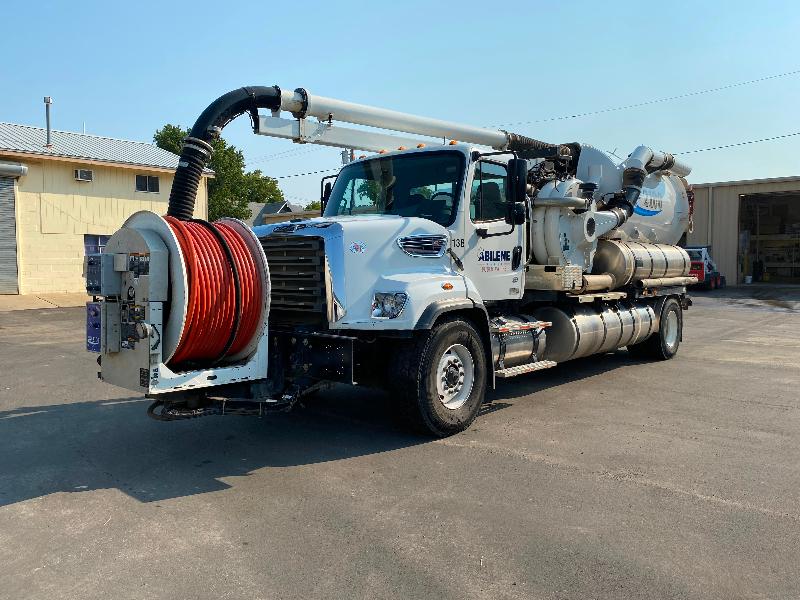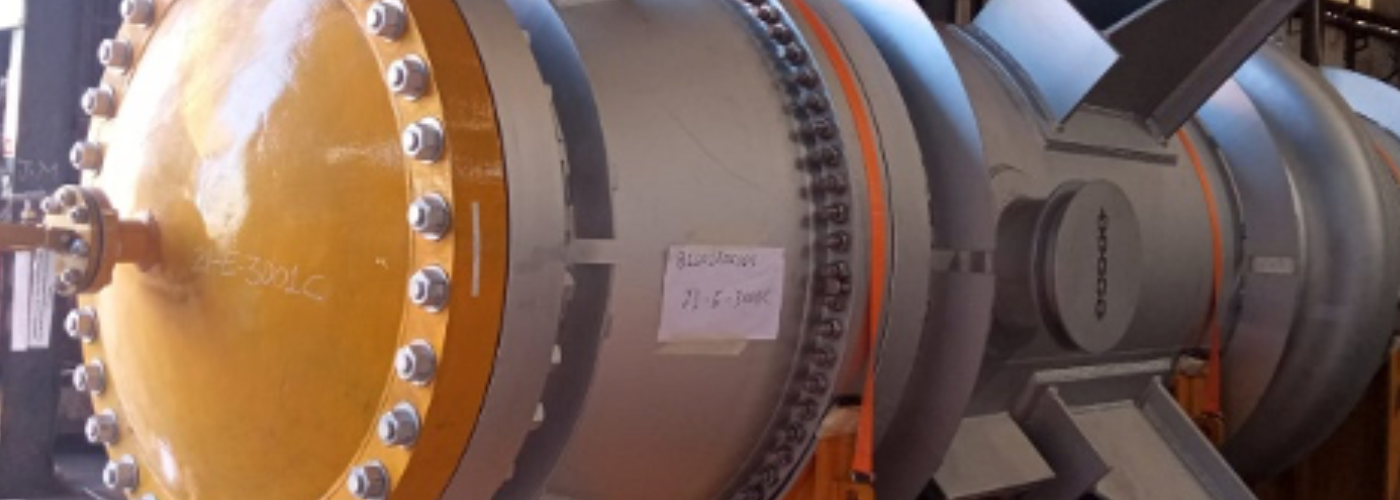Media Coverage

The Effect of COVID-19 on Remarketing
By: RitchieBros/GovPlanet
March 30, 2021
September 2, 2020 by Shelley Ernst
When COVID-19 became a stark reality in the United States, many live events were swiftly canceled. Concerts, sporting events, and conferences weren't the only occasions crossed off the calendar: live vehicle auctions were suddenly shut down, too. Just like that, auctions and fleets had to change their remarketing game plan. Adding to complications were financial hardships and concern over the contact involved in pick-ups, both of which affected online sales, too. How has it all been panning out? Fleets and auction platforms weighed in on the impact of COVID-19 on remarketing.
The Impact on Fleets In mid-March, vehicle sales at JEA, a community-owned electric, water, and sewer utility in Jacksonville, Fla., ground to a halt. Even though JEA performs sales online with GovPlanet, pandemic-related shutdowns resulted in a few months of no sales. "Due to unknowns regarding the virus, we suspended sales of vehicles and other surplus material," said Carl Ramsubhag, manager of investment recovery operations. "We did not want the risk of exposure to people coming onsite to retrieve purchases."
In mid-May, JEA had made a game plan and resumed online sales. "We took steps internally and mandated our employees sanitize vehicles following use," Ramsubhag said. "When retired assets are turned over to the auctioneer, they are sanitized. The onus is on the auctioneer to make certain they continue to sanitize the vehicles in accordance with CDC guidelines." Looking back, Ramsubhag said there are some obvious drawbacks, but a silver lining as well. "It certainly has a negative financial impact. We are not getting the bid prices we once received for similar items in good working order. There have been occasions where the buyer failed to meet the minimum/opening bid price," he said. "The positive, I suppose, revolves around being more creative and perhaps revisiting the business model."
At the onset of the pandemic, the city of Kirkwood, Mo., saw a major slow down, too. The city had a few vehicles listed on GovDeals at the time, but none of them met the reserve. So, the city pulled the vehicles from the platform, hoping the pendulum would swing back in the direction of used vehicles being purchased. At the end of June, the city saw the upward trend it was looking for, and relisted the assets on the website. At the time he was interviewed, Fleet Services Director Christopher Wenom said three of the four vehicles had met the reserve with a week remaining in the auction. Although meeting the reserve was an issue, the loss of live auctions wasn't. "The vast majority of our surplus is placed on GovDeals, thereby minimizing the impact of live auction status," Wenom said. "The only process change implemented was holding off our auctions until resale pricing trends increased to near normal returns." Joe Lane, national director, state & local government for RitchieBros/GovPlanet, agrees the rapid shift to online remarketing for many fleets will result in a longer-term trend toward digital platforms.
On the auction side of things, online platforms saw a major increase as a result of the pandemic-caused pause on live auctions. "We have marked significant increases across the company's platforms in customers seeking online bidding privileges and a corresponding increase in the number of web searches and page views," explained Joe Lane, national director, state & local government for RitchieBros/GovPlanet. "The latest data for the past month shows web activity is up on both rbauction.com and ironplanet.com/govplanet.com in the past 30 days year-over-year." At rbauction.com, new web accounts are up 127.7% and registrations are up 100.3%, while item detail page views at ironplanet.com/govplanet.com are up 186.5% and new requests for bidding privileges have increased by 105.4%.
Lane said although Ritchie Bros. was forced to temporarily close auction theaters to onsite bidding, doing so didn't significantly impact the company's performance, as the organization has been evolving toward an enhanced digital auction environment for years. "In the U.S., upwards of 70% of the equipment in our live onsite auctions was already selling to online buyers before the COVID-19 crisis hit - that number just moved up to 100%," Lane explained. "Our IronPlanet and GovPlanet platforms were already 100% online, so we have not noted any major impacts there." Steve Kranzusch, vice president and general manager, GovDeals, Inc., agreed that the market was already primed for the shift to online selling, making it easier to navigate remarketing amidst the shutdowns. "Even before the pandemic unfolded, more government agencies were trending toward pure online remarketing companies to benefit from a more controlled, transparent, and financially lucrative selling experience," he said. "As you can imagine, the necessity for traditional auctioneers to pivot to an online model to save their businesses has put many agencies in the position of rethinking who has a proven track record of success selling in this environment."
A 2010 Ford F-150 Regular Cab recently sold on GovDeals was replaced under new life cycle guidelines and realized a 40.199% ROI.Photo: City of Kirkwood John Littler, western US business development manager for GovDeals, said while many fleets were backing off of sales and purchases, one customer was determined to forge ahead selling its surplus vehicles and equipment and recovering that critical revenue stream. Despite its determination, state laws and social distancing rules threatened the fleet's ability to have clients come to pick up their assets. "With our assistance, they created social distancing guidelines and built them into their pick-up process policy. Our guidance included remote Bills of Sale, transfer of title, and a safe environment for transferring the buyer's assets," Littler said. The new strategy paid off. "This agency not only sold throughout the height of the pandemic, but they also made more money per asset (due to fewer sellers and assets on the market) in as safe an environment as possible."
A few examples of vehicles one can find on GovDeals. What Happens Next? Even though JEA has resumed online sales, Ramsubhag said the future is still uncertain and the organization is managing the challenges day-by-day. "With social distancing, mandates on wearing masks, and other COVID-related concerns, we have not developed a definitive plan," he said. "With companies experiencing financial hardships, the audience has definitely changed, which of course impacts sales. Until the virus is under control and a vaccine is developed, we will definitely feel the impact." While acknowledging the challenges, Ramsubhag still sees the light at the end of the tunnel. "Being the eternal optimist, I know things will level out at some point and we will return to business as usual," he said. Wenom is also hopeful. "I personally feel the markets will return to normal in a short period of time, as we have already seen in early July's online auctions," he said. Littler says the shift to online platforms is here to stay, although a successful shift may take time. "Entirely live auction services are a thing of the past," he said. "Now that our society has adapted to purchase virtually everything online (I haven't been inside a grocery store in three months), it is becoming less threatening to people that were slower to adapt to this technology.
Many companies who were doing this have had to shift to an online format quickly. It may take years for them to build up a proper and solid bidder base to compete adequately. Therefore, there may be consolidation in the market." Lane agrees the rapid shift to online remarketing for many fleets will result in a longer-term trend toward digital platforms. "One day, let's pray sooner than later, we will come out the other side of this period and remarketing will be conducted as usual - with the long-term trend toward online auctions continuing to dominate and perhaps completely dominating the sector as a result of all of the changes necessitated by the COVID-19 period," he said. "In the end, government fleets still have mission critical tasks to fulfill for their taxpayers and communities, and they will continue to meet those needs as best they can with the resources they have available to do so."
Online Remarketing Tips:
- Ask colleagues about their vendor of choice and choose one that allows you to reach the intended audience of buyers for your specific asset type.
- Clean and wash the vehicle before taking photos, being sure to remove decals or other identifying marks.
- Fix minor problems before listing an asset so it's not noted as a problem in the vehicle description.
- Take good photos of assets, showing the interior, exterior, and under the hood.
- Capture video of the assets; allowing potential buyers to hear the motor running, watch equipment operate, and "walk around" the unit gives buyers more of a live auction experience.
- Provide an honest, detailed description of the asset.
- Write a detailed header, which will help it appear in a buyer's search results.
- Attach service records when possible.
- Consider a low starting price. "When we begin the surplus process for an asset, we set a reserve just below wholesale value, which is historically reached prior to the end of the auction, and realize market value by the end of the auction due to the competitive nature of our buyers," Wenom said.






